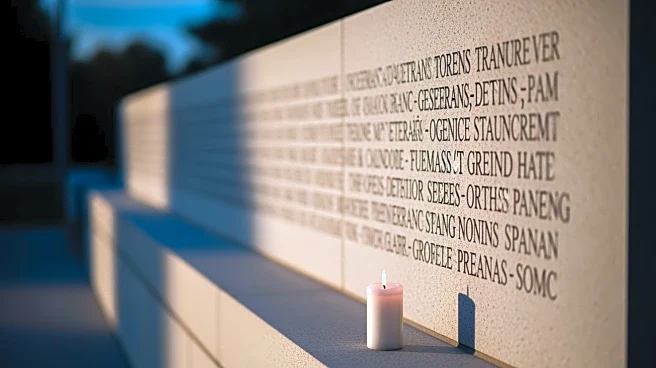What's Happening?
Iran's Foreign Minister, Abbas Araghchi, has declared that the country is no longer enriching uranium at any of its sites. This announcement comes in the wake of a 12-day conflict with Israel, which reportedly targeted Iran's enrichment facilities. Araghchi emphasized
Iran's right to use nuclear technology for peaceful purposes and expressed a desire for diplomatic engagement with the United States. However, he stressed that Iran is not open to negotiations that are perceived as dictatorial.
Why It's Important?
This development is significant as it could potentially ease tensions between Iran and Western nations, particularly the United States, which have been concerned about Iran's nuclear capabilities. The halt in uranium enrichment might open new avenues for diplomatic negotiations, potentially leading to a reduction in regional tensions. However, the situation remains delicate, as Iran's insistence on not accepting dictatorial negotiations could complicate diplomatic efforts. The outcome of these developments could have far-reaching implications for international relations and regional stability in the Middle East.
What's Next?
The international community, particularly the United States and its allies, will likely monitor Iran's actions closely to verify the cessation of uranium enrichment. Diplomatic efforts may intensify to bring Iran back to the negotiating table under terms acceptable to both sides. The response from Israel, which has been directly involved in the recent conflict, will also be crucial in shaping the next steps. Any progress or setbacks in these diplomatic efforts could significantly impact global security and economic conditions.

















